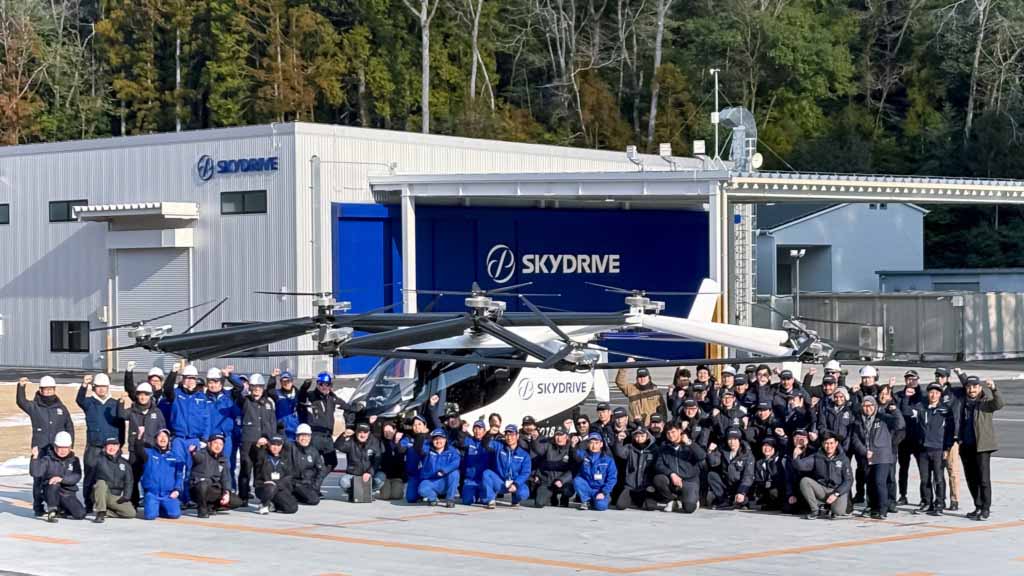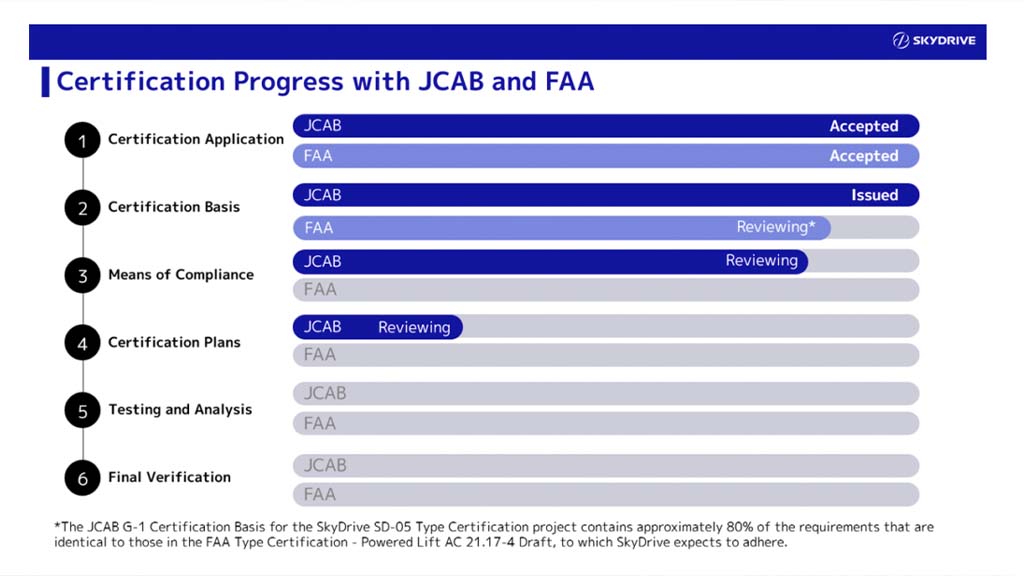
Japanese eVTOL developer SkyDrive shared two exciting developments today. First, it has officially received a G-1 certification in Japan for its flagship “SKYDRIVE” eVTOL. This is a step forward for the aviation startup working toward commercial eVTOL operations in Japan and the US. In the meantime, SkyDrive also shared its first real-world images of its aircraft, including one in the air.
SkyDrive Inc. is a lesser-known name in the blossoming sustainable aviation segment, but it has been making quick progress in development on two continents while expanding its global customer base. A huge milestone on SkyDrive’s to-do list is reaching scaled eVTOL production. It intends to do so with the help of Suzuki, which has signed on to manufacture the aircraft in Japan.
In the summer of 2023, SkyDrive announced that it was establishing a US headquarters in South Carolina and had secured its first eVTOL pre-order. Its order books continue to grow as SkyDrive works toward achieving eVTOL flight certification in both the US and Japan.
While the company has made progress on that front, we had yet to see any images of its flagship eVTOL beyond renderings… until now. Today, SkyDrive shared first real-life images of its “SKYDRIVE” eVTOL alongside a certification update overseas in Japan.

SkyDrive eVTOL nabs G-1 certification from JCAB
Earlier today, SkyDrive confirmed that its flagship eVTOL aircraft had been issued a G-1 certification basis from the Japan Civil Aviation Bureau (JCAB), the country’s equivalent organization to the FAA in the US. This milestone builds upon existing cooperation between the eVTOL developer and JCAB to eventually achieve type certification for the former’s “SKYDRIVE” 3-passenger aircraft.
Speaking of which, SkyDrive also shared its first official images of the SKYDRIVE eVTOL (seen above) before its official unveiling at the World Expo 2025 in Osaka, Japan, where it will also perform demonstration flights to the public.

SkyDrive says it is continuing discussions with JCAB over its future certification plan in order to reach a finalized agreement as to the eVTOL testing schedule and procedures. Once a certification plan is in place, SkyDrive intends to begin eVTOL ground and flight testing in Japan.
At the same time, the eVTOL developer is working with the Federal Aviation Administration (FAA) to validate a separate certification process for the SKYDRIVE eVTOL in the US. SkyDrive’s Chief Development Officer Arnaud Coville spoke to the company’s certification milestone and what the future holds:
We are pleased to announce that the JCAB has issued the G-1 certification basis that will apply to our first commercial eVTOL aircraft. We have reached this significant milestone through a series of respectful and collaborative discussions with the JCAB. The issuance of this certification basis represents the culmination of substantial efforts invested over several months. We are also thrilled with the recent progress achieved in our validation project with the FAA. Our prototype aircraft, which is currently undergoing an extensive series of flight tests, continues to accumulate valuable data as we make steady progress toward the upcoming demonstration flights at the Osaka Expo. As we pursue our certification roadmap and showcase the capabilities of our aircraft to the public, 2025 is set to become an important year for SkyDrive. We are delighted that the year is off to such a great start.
SkyDrive says its flagship eVTOL is undergoing flight tests in preparation for its official public unveiling at the World Expo 2025, which will kick off in Osaka on April 13, 2025, and run through mid-October.
FTC: We use income earning auto affiliate links. More.



Comments